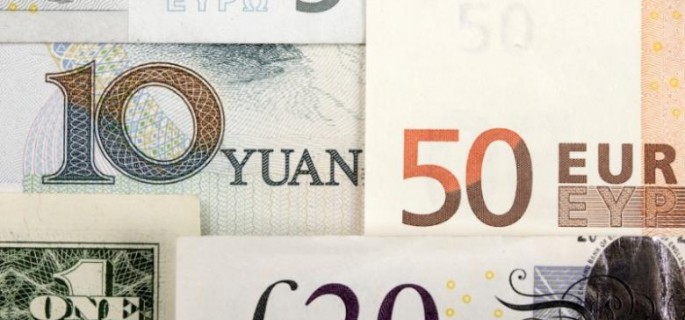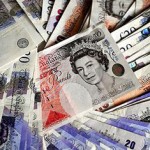The euro and yen rose, Singapore dollar slipped; U.S dollar snaps four week rally

The dollar and U.S. Treasury yields were poised to end four weeks of gains as confidence in American tax-cut plans waned somewhat and the Federal Reserve signaled that several policy makers are cautious about another 2017 interest-rate hike.
Asian equities were mostly firmer while the S&P 500 Index edged lower, following a run of gains in global stocks that’s seen historic highs hit this week. U.S. shares were weighed down by declines in JPMorgan Chase & Co. and Citigroup Inc. on concerns about consumer credit and a plunge in revenue from trading. Bitcoin surged to a fresh record, climbing above $5,600, while oil traded around $51 and gold was flat.
Singapore’s dollar headed for a weekly rise after its central bank didn’t specifically reiterate a previous pledge to keep its neutral policy stance for an “extended period.” China’s markets were little changed after the country reported solid export growth for last month. Focus later turns to U.S. retail sales and consumer price data. The pound rallied overnight as Handelsblatt reported Europe’s top negotiator may offer the U.K. a two-year transition to stay in the single market as long as Britain meets financial obligations.
The euro remained about a cent above the seven-week low it hit last Friday after a report on plans under discussion at the European Central Bank. ECB officials are considering cutting their monthly bond buying by at least half starting in January, and keeping the program active for at least nine months, according to officials familiar with the debate. Read more about that here.
In the U.S., the Trump administration’s tax plan clouded up as the president was said to voice frustration with certain aspects of the existing framework. Some Congressional Republicans have aired concerns, though Treasury Secretary Steven Mnuchin reiterated his confidence that a plan will get passed this year.
In the latest development on the North Korea front, the yen saw a brief gain after news of a modest earthquake near the site of past nuclear tests in the country. South Korea’s weather agency said it was a natural phenomenon, though the U.S. Geological Survey had no immediate conclusion. Bomb tests have caused some of the previous shaking in the area, but the 2.9 magnitude compares with a reported 6.3 for the H-bomb test in September.
What’s coming up this week:
- China’s exports remained robust in a sign trade is being supported by global demand. Exports grew 9 percent in September, while imports increased 19.5 percent with the trade surplus at $29.4 billion.
- The active Atlantic hurricane season will probably figure prominently in U.S. data on retail sales and consumer prices. U.S. wholesale prices jumped in September by the most in five months as gasoline costs spiked after Hurricane Harvey. The producer-price index rose 0.4 percent.
Here are the main moves in markets:
Stocks
- Japan’s Nikkei 225 was up 0.6 percent as of 12:51 p.m. in Tokyo, after closing at the highest since 1996 on Thursday. Fast Retailing Co., the gauge’s biggest component, climbed 4.3 percent as overseas sales rose. The broader Topix index rose 0.2 percent.
- Futures on the S&P 500 Index were flat. The underlying gauge declined 0.2 percent from Wednesday’s record high.
- Australia’s S&P/ASX 200 Index advanced 0.3 percent, while Hong Kong’s Hang Seng Index was little changed and China’s benchmark was slightly firmer.
Currencies
- The Bloomberg Dollar Spot Index is on track for a 0.6 percent decline this week after rallying for the previous four weeks.
- The euro was up 0.2 percent on the day, at $1.1848.
- The Singapore dollar slipped 0.1 percent, to 1.3542, but is up 0.8 percent this week.
- The British pound was $1.3275 after gaining in the last four sessions. Read more here about Brexit costs and whether Britain will pay up and click here for the Handelsblatt report.
- The yen rose 0.1 percent to 112.14 per dollar.
Bonds
- The yield on 10-year Treasuries held at 2.33 percent, 3 basis points lower than last week’s close.
- The yield on Australia’s 10-year government bonds was steady at 2.80 percent.
Commodities
- West Texas Intermediate crude added 0.6 percent to $50.88 a barrel. It declined 1.4 percent in Thursday’s session, but is still on course for a weekly advance.
- Gold inched up 0.2 percent to $1,295.81 an ounce. It’s up 1.5 percent this week, heading for the first weekly advance in five weeks.
Source: Bloomberg – Dollar Snaps Four-Week Rally as Stocks Consolidate: Markets Wrap





























